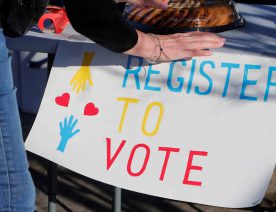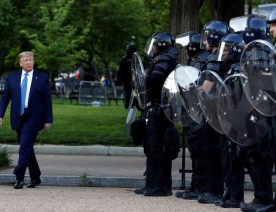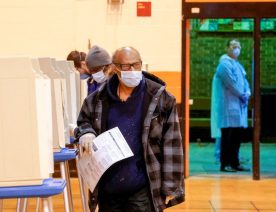
September 18, 2020
Twice as many voters plan to vote by mail this year than have typically done so in the past. However, support for major changes to voting methods declined since the start of the coronavirus pandemic.
Among registered voters, 61% report normally voting in-person on Election Day and 21% usually vote by mail. These rates are similar among Democrats and Republicans. The picture looks quite different for November though. About twice as many voters plan to cast their ballot by mail. And the rate is far higher among Democrats (52%) than Republicans (28%).
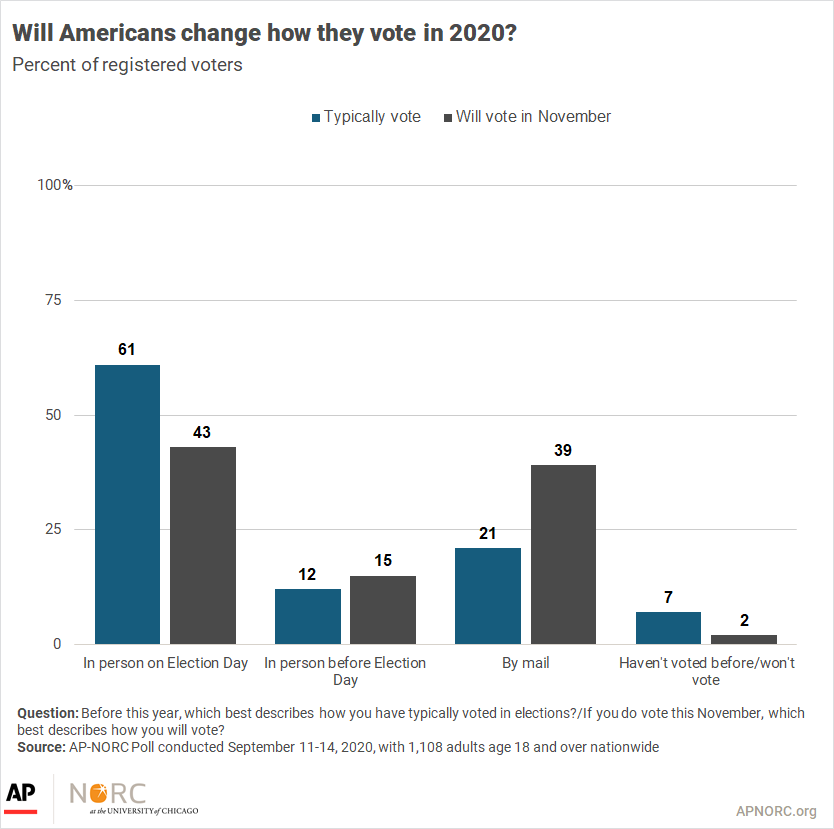
Support for methods to cast a ballot that would allow people to avoid gathering at polling places on Election Day declined since an April AP-NORC survey. At that time, 56% of Americans favored their state allowing people to vote by mail without needing to provide a reason, while now 47% support no-excuse absentee voting. There has also been a drop in support for online voting and mail only voting without an in-person option.
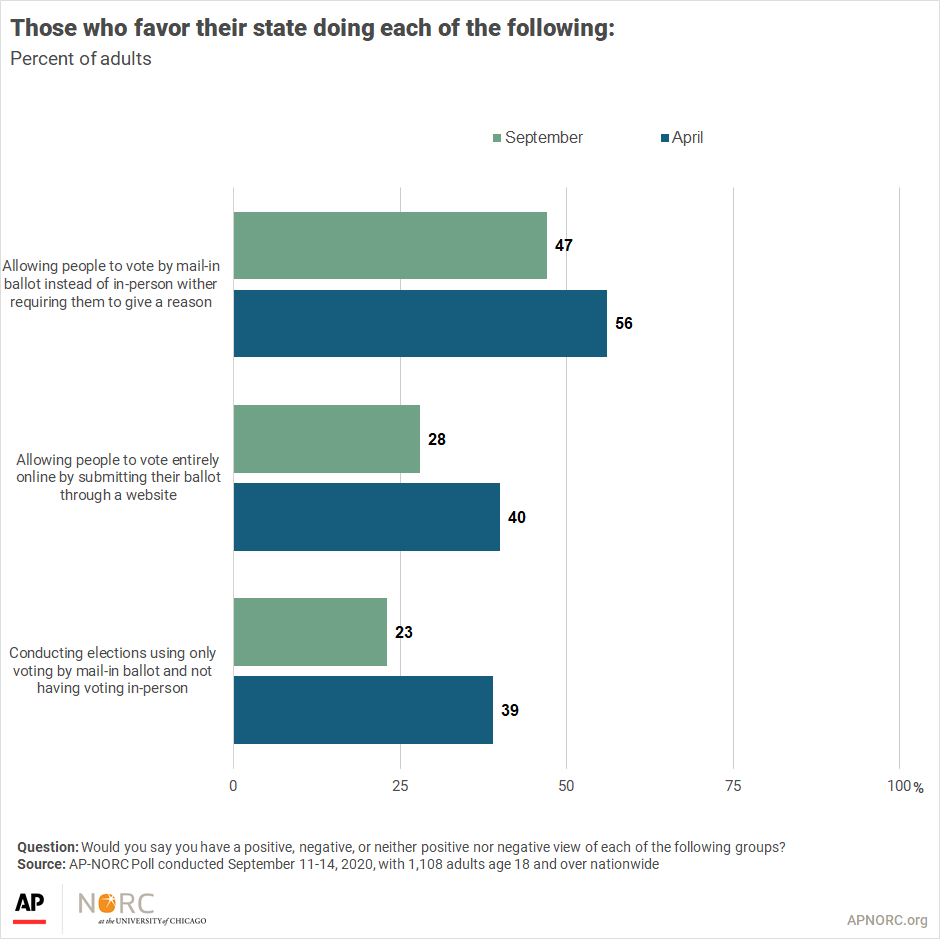
Support for these ways to cast declined among partisans of both parties. Democrats continue to strongly support no-excuse absentee voting, while Republicans still oppose casting votes by mail or online.
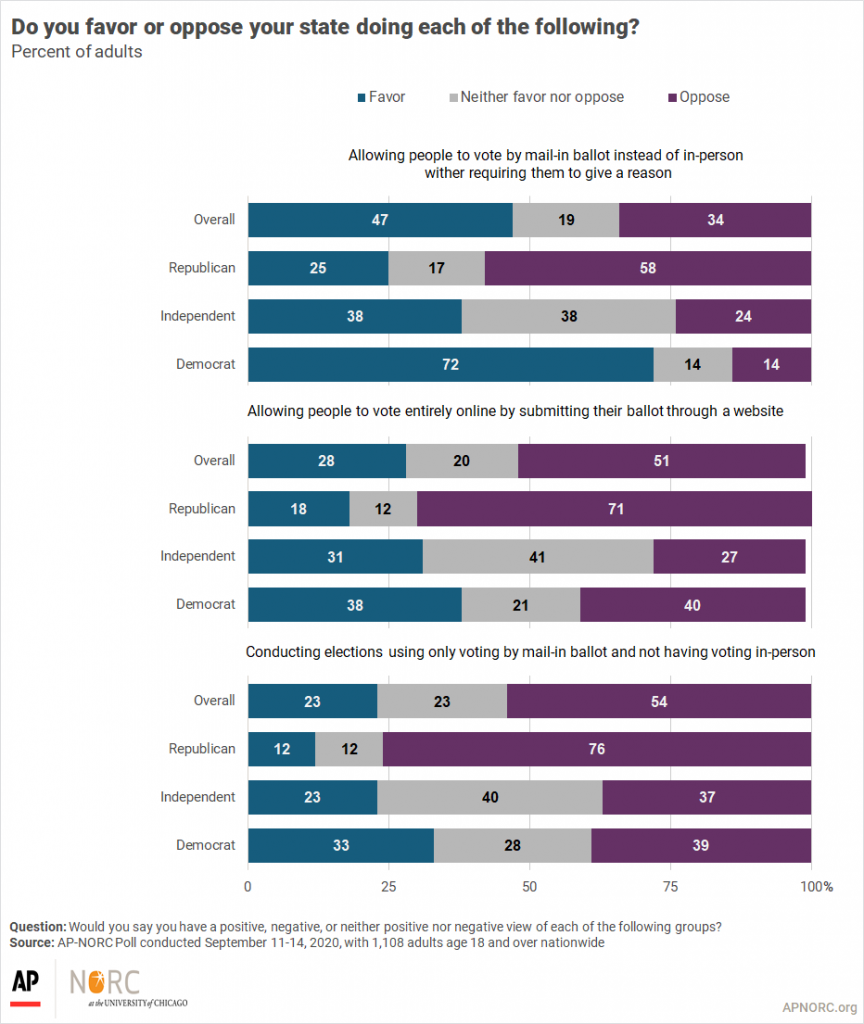
Although growing numbers of voters plan to cast their ballots by mail, the public has some concerns about both voter fraud and voter suppression. There is not a partisan difference in whether people think mail voting would lead to voter suppression, but Republicans are much more likely than Democrats to say voter fraud would be a big problem if all voting by was done by mail. In April, 64% of Republicans said mail voting would lead to voter fraud; now 72% say that. Among Democrats, there was little difference between April and September (28% and 27%).
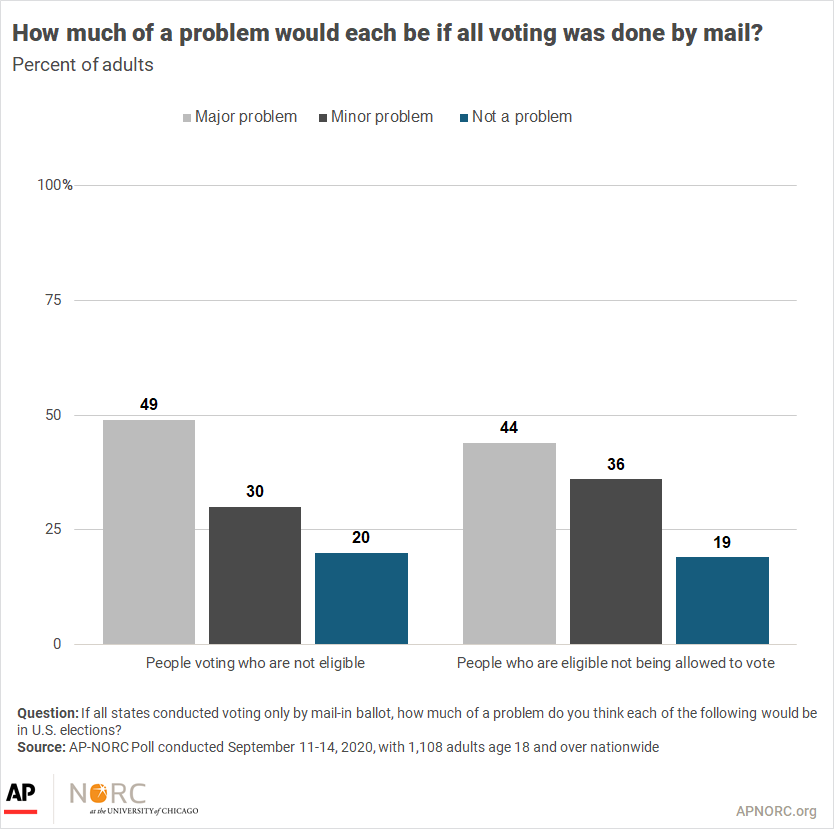
When it comes to the institutions needed to support a fair and accurate election this November, public confidence in the U.S. Postal Service and the country’s intelligence gathering agencies is not overwhelming. Thirty-four percent have a great deal of confidence in the Postal Service, 49% have some confidence, and 16% have hardly any confidence. Twenty-three percent have a great deal of confidence in intelligence gathering agencies, 56% have some, and 19% have hardly any.
Looking toward November, 75% of registered voters are interested in the campaign, but just 33% feel excited about the upcoming contest between Donald Trump and Joe Biden. Republican voters are more inclined to be excited about the election compared to Democrats. Democrats are more likely than Republicans to feel frustrated and anxious.
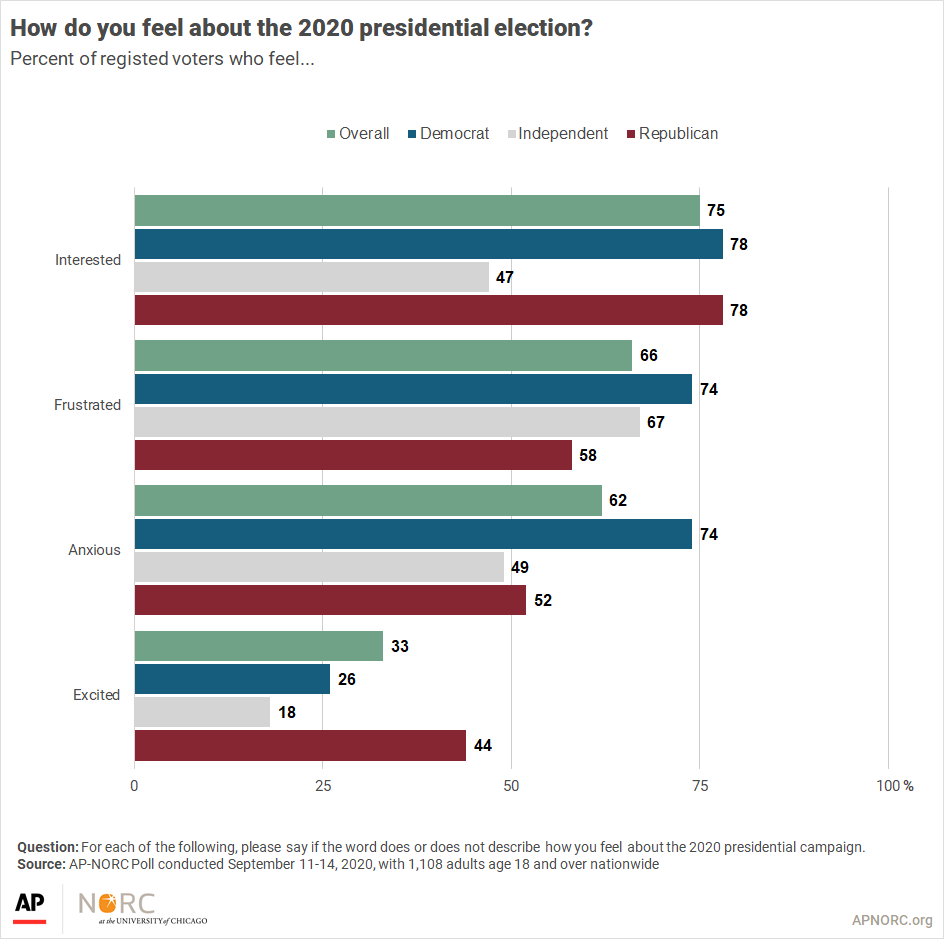
The nationwide poll was conducted September 11-14, 2020 using the AmeriSpeak® Panel, the probability-based panel of NORC at the University of Chicago. Online and telephone interviews using landlines and cell phones were conducted with 1,108 adults. The margin of sampling error is +/- 4.0 percentage points.
Suggested Citation: AP-NORC Center for Public Affairs Research. (September, 2020).“Casting a Ballot in 2020.” [https://apnorc.org/?post_type=project&p=2727]





